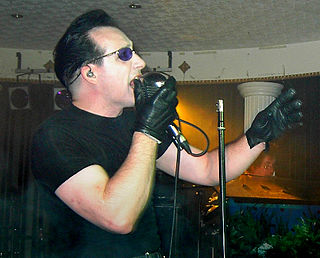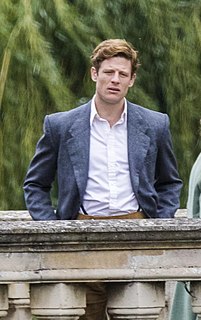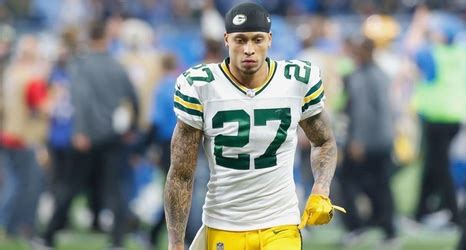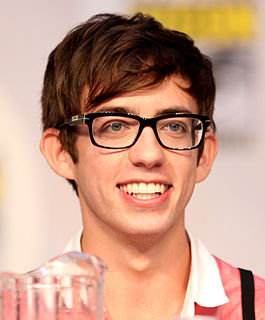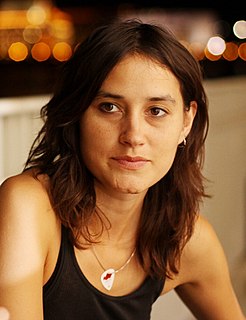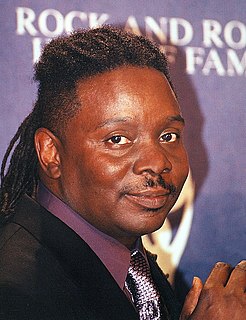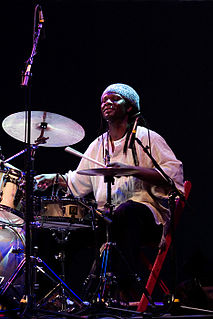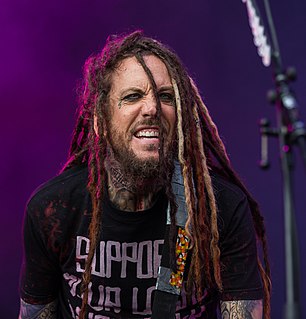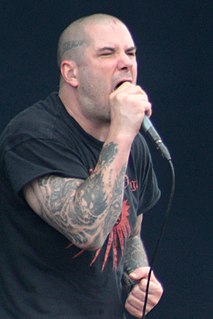A Quote by David Vanian
In the beginning, the punk scene was so full of promise. All the bands were different, and all the sounds were different. The common denominator was that it was all very young kids doing it, and doing it on their terms. But then it became, 'You should listen to this and you should wear this uniform, and you shouldn't do this or that.' It was supposed to be about not having rules, but every generation of music gets watered down.
Related Quotes
Had I lived in Norman and those bands hadn't existed, who knows where I'd be, I might be doing something awful; I might be a doctor, or a physicist or something. Having those kinds of experiences at 12...the Chainsaw Kittens had a flamboyant homosexual lead singer, and the Flaming Lips were obviously very weird. I had only listened to the radio before that - things like Willie Nelson - so having people say, "These are the bands around here that you should listen to," I was like "Ok, I guess this is what normal music sounds like." That definitely changed things.
I can say is our point of reference - and I think that does make us different from some bands and similar to other bands too. But it's just that spirit - it's sort of like a punk spirit - but it's not punk meaning or as in like "I'm here and I'm going to get thrashy and bloody on-stage" - but, we're not going to listen to the rules and the roles already set in place. We just want to make music that is heartfelt and feels good and sounds good to our ears, and hopefully to many other's ears as well.
When I was home, traditionally since I was young, I'd write in cafés. That was the romantic notion in 1963. Café atmospheres back then were different. The café life really stemmed from the Parisians' idea of it, with poets struggling over their poems and drinking coffee. No music, no sounds, maybe a little jazz, or soul, but mostly nothing. Now you go into a café and the music is really loud, people are having business meetings, they are on their cellphones. It changes from generation to generation.
My vision of punk rock was these dudes who were spitting on the audience and moshing. That's why I kind of left that scene. Then I see all these people around my same age or between 17 and 25 that were making music themselves in their own town. They weren't just singing, but creating. I see them putting out this music where there are tons of women involved in the scene and involved in the bands.
When I started doing improvise music in Europe, in the beginning I thought the way that Europeans were interpreting the reconstruction of deconstruction of this thing that we call jazz - of course it's different than what Americans do, because Europeans have a different history, a different sensibility and so forth - the nature of the creative process itself it's the same; but what comes from that creative process is different, because you have a different history, you have a different society, different language.
I've always thought that "punk" wasn't really a genre. My band started in Olympia where K Records was and K Records put out music that didn't sound super loud and aggressive. And yet they were punk because they were creating culture in their own community instead of taking their cue from MTV about what was real music and what was cool. It wasn't about a certain fashion. It was about your ideology, it was about creating a community and doing it on your own and not having to rely on, kinda, "The Man" to brand you and say that you were okay.
It was awesome growing up in New Orleans because there were great metal bands, there were great hardcore bands, there were great thrash metal bands in the middle '80s and what-not. But then, take me out of New Orleans, and I moved to Fort Worth in 1987, and there's a scene there, too. And Texas absolutely has a different sound.
